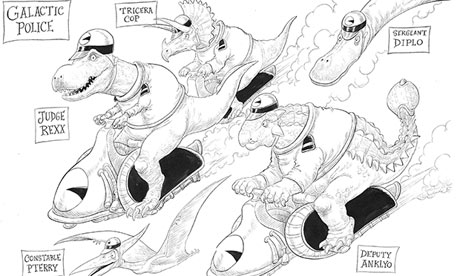Saturday, October 31, 2020
Paul Auster / Time is running out, but I'm happy
Paul Auster / “I wrote the book blindly, not knowing what was going to happen next”
Paul Auster: “I wrote the book blindly, not knowing what was going to happen next”
US writer discusses ‘4321’, his first novel in seven years, ahead of translation into Spanish

Paul Auster / ‘I'm going to speak out as often as I can, otherwise I can't live with myself'
 |
| Paul Auster |
Paul Auster: ‘I'm going to speak out as often as I can, otherwise I can't live with myself'
The novelist on Trump’s America and publishing the book of his life at 70
Paul LaityFriday 20 January 2017
 |
| ‘I started the book at 66, which is the year my father died. Once I passed that boundary, I began to live in a very creepy world’ … Paul Auster Photograph: Tim Knox for the Guardian |
Auster didn’t realise the boy had died instantly. “So I dragged him into the clearing. And for an hour, as we were pounded by intense rain, and attacked by lightning spears, I was holding on to the boy’s tongue so he didn’t swallow it”. Two or three other kids nearby had also been struck and were moaning; “it was like a war scene. Little by little, the boy’s face was turning blue; his eyes were half open, half shut, the whites were showing.” It took Auster a little while to absorb that, had the strike occurred just a few seconds later, it would have been him. “I’ve always been haunted by what happened, the utter randomness of it,” he says. “I think it was the most important day of my life.”A similar incident occurs in Auster’s new novel, 4321. Archie Ferguson, a 13-year-old full of promise, enthralled by The Catcher in the Rye and his first kisses, runs under a tree during a storm at summer camp. When lightning strikes, he is killed by a falling branch: “as his inert body lay on the water-soaked ground … thunder continued to crack, and from one end of the earth to the other, the gods were silent”.
An Interview with Paul Auster
 |
| Paul Auster |
An Interview with Paul Auster
Nathalie Cochoy et Sophie Vallas
New York, March 2014
Paul Auster: OK, fire away!
Nathalie Cochoy: One of my fields of interest is New York, and the representation of walking in New York. When thinking about the art of walking, I often think of Thoreau and his concept of “sauntering.” In “Walking,” Thoreau simultaneously associates the French etymology of the word “sauntering” with a loss—être sans terre—and a form of pilgrimage—aller à sainte terre. You also seem to consider getting lost as a means of finding yourself. In The Invention of Solitude, you recall your enjoyment at being lost in the maze of Amsterdam. I also remember these ambivalent lines in one of your poems: “A footstep / gives ground,” evoking a form of relinquishment and a form of birth. Is this something you often experience? Is walking a means of returning to the origins of your art?
Friday, October 30, 2020
Gene Wolfe / The Nebraskan and the Nereid
The Nebraskan and the Nereid
THE Nebraskan was walking near the sea when he saw her. Two dark eyes, a rounded shoulder with a hint of breast, and a flash of thigh; then she was gone. A moment later he heard a faint splash-or perhaps it was only the fabled seventh wave, the wave that is stronger than the rest, breaking on the rocks.
Almost running, he strode to the edge of the little bluff and looked east across the sea. The blue waters of the Saronikos Kolpos showed whitecaps, but nothing else.
Gene Wolfe / Thag
Thag
by Gene Wolfe
Gene Wolfe / Thag (A short story in Spanish)
ONCE upon a time there was a boy named Eric who had a tame raven and a ragged cap and no boots, and lived with his mother in a cottage in the forest. Eric' and his mother were very poor, but nonetheless they possessed a great treasure, a charm ancient and powerful. This was a bear's skull, and hung from the roofbeam of their little house on a chain of iron. Eric's great-grandfather had made it long ago, choking the bear with moonlight and filling his skull with the cottony tales of rabbits, and the urine of shadows, and black feathers snatched at great risk from the left foreleg of an eagle, and many other things. The bear's skull was the home of Thag, as a beehive is the home of bees; and Thag was a powerful spirit though he was often away.
Thursday, October 29, 2020
Gene Wolfe / Kevin Malone
KEVIN MALONE
by Gene Wolfe
MARCELLA and I were married in April. I lost my position with Ketterly, Bruce & Drake in June, and by August we were desperate. We kept the apartment-I think we both felt that if we lowered our standards there would be no chance to raise them again-but the rent tore at our small savings. All during July I had tried to get a job at another brokerage firm, and by August I was calling fraternity broth- ers I had not seen since graduation, and expressing an entire willingness to work in whatever businesses their fathers owned. One of them, I think, must have mailed us the ad- vertisement. Attractive young couple, well educated and well connected, will receive free housing, generous living allowance for min- imal services. There was a telephone number, which I omit for reasons that will become clear. I showed the clipping to Marcella, who was lying with her cocktail shaker on the chaise longue. She said, "Why not," and I dialed the number. |
Remembering Gene Wolfe
 |
| Gene Wolfe |
Remembering Gene Wolfe
Valya Dudycz LupescuGene Wolfe passed away last night, April 14, 2019. He was one of the world’s greatest writers, one of my literary heroes and inspiration, and he was my friend.

Many people have written about his novels and stories, and more will continue to speak about Gene’s incredible talent, his sharp intellect and wit, his brilliant imagination and unforgettable characters. It’s all true and so much more. Gene’s writing bridged literary and genre worlds in a way unlike any other writer. His books and stories will stand the test of time.
When the Chicago Literary Hall of Fame decided to honor a writer for our first lifetime achievement award, the Fuller Award, I had no doubt that it should be Gene Wolfe. Planning that event in 2012 was one of my greatest joys, assembling writers and editors, friends and family, who loved him under one roof. We gathered together in a gilded setting full of mechanical delights (including a giant indoor carousel!) to celebrate the man and his stories. It was a magical evening to honor a remarkable man.
Gene Wolfe / Endangered Species / Bryan Alexander's review
I came to Endangered Species with decades of bias. I've been a Gene Wolfe fanatic since college, when I first read The Book of the New Sun. Since then I've read nearly everything the man has written. I've met him several times, and enjoyed his company immensely. I've actually gone in Wolfe-themed costume to a ball, and spent a while on the Urth email list.
Wednesday, October 28, 2020
Gene Wolfe / Endangered Species
Endangered Species
by Gene Wolfe
Three stories by Gene Wolfe about mysterious women
Wolfe, whose tetralogy The Book of the New Sun was the most acclaimed science fiction series of the 1980s, offers his second collection, a hefty volume of over 30 stories in a variety of genres--SF, fantasy, horror, mainstream. Many of them are variations on themes and situations found in folklore and fairy tales; Wolfe's deconstructions/reconstructions are provocative, multilayered, resonant. Occasionally, too, they seem intentionally enigmatic. Two of the stories, ``The Cat'' and ``The Map,'' are set in the universe of his New Sun novels. ``A Cabin on the Coast'' tells of a promising politician who loses his lover to the fey folk living in the sea. He strikes a bargain for her return, promising to undergo 20 years of servitude. When his lover finally returns, he has lost his youth, and with it, we assume, his future. ``In the House of the Gingerbread'' is a variation on ``Hansel and Gretel'' rewritten as a contemporary detective story; and ``The Detective of Dreams'' is an Arabian Nights tale as told by G. K. Chesterton--its spiritual subtext is made explicit in the end. A predominance of excellent stories makes this a rewarding book.
Three stories by Gene Wolfe about mysterious women
Three stories
by Gene Wolfe
about mysterios women
M Porcius
Thursday, May 7, 2015
 |
| "Sweet Forest Maid" first appeared in F&SF |
 |
| "Suzanne Delage" first appeared in Le Guin and Kidd's Edges; you can read it for free at Lightspeed, an e-magazine |
 |
| "Kevin Malone" first appeared in Ramsey Campbell's New Terrors, and can be found in The Best of Gene Wolfe |
The Secret to Reading Gene Wolfe
 |
| Gene Wolfe |
 Gene Wolfe has a reputation as being one of those writers whose books & stories you have to read twice. He buries subtle clues in what the Wikipedia article about him calls his “dense, allusive prose”. He uses unreliable narrators. In reviews, people talk about “getting” him, or “not getting” him, making it sound as though there’s a secret to reading Wolfe, a special technique you don’t need for other writers. So, when I came to read him, I found myself asking questions I wouldn’t normally ask. Was I going to have to take notes? Was I going to have to disbelieve everything his narrators said? Was I going to have to buy a new, bigger dictionary? And of course, was it really going to be worth it?
Gene Wolfe has a reputation as being one of those writers whose books & stories you have to read twice. He buries subtle clues in what the Wikipedia article about him calls his “dense, allusive prose”. He uses unreliable narrators. In reviews, people talk about “getting” him, or “not getting” him, making it sound as though there’s a secret to reading Wolfe, a special technique you don’t need for other writers. So, when I came to read him, I found myself asking questions I wouldn’t normally ask. Was I going to have to take notes? Was I going to have to disbelieve everything his narrators said? Was I going to have to buy a new, bigger dictionary? And of course, was it really going to be worth it?
Tuesday, October 27, 2020
Gene Wolfe / Quotes
My whole life experience feeds into my writing. I think that must be true for every writer. Clearly the Army and combat were major influences; just the same, you need to understand that many of the writers we have now couldn't load a revolver.
Neil Gaiman / How To Read Gene Wolfe
How To Read Gene Wolf
by Neil Gaiman
LOOK AT Gene: a genial smile (the one they named for him), pixie-twinkle in his eyes, a reassuring mustache. Listen to that chuckle. Do not be lulled. He holds all the cards: he has five aces in his hand, and several more up his sleeve.
I once read him an account of a baffling murder, committed ninety years ago. "Oh," he said, "well, that's obvious," and proceeded off-handedly to offer a simple and likely explanation for both the murder and the clues the police were at a loss to explain. He has an engineer's mind that takes things apart to see how they work and then puts them back together.
Monday, October 26, 2020
Neil Gaiman / Fortunately, the Milk / Review
 |
| Neil Gaiman |
Fortunately, the Milk by Neil Gaiman – review
- Philip Ardagh
- The Guardina, Saturday 14 September 2013


Sunday, October 25, 2020
Gilliam Anderson / There were times when life was really bad
 |
| Gillian Anderson |
Gillian Anderson: ‘There were times when life was really bad’
The actor formerly known as Dana Scully is now a self-help guru. How did she beat self-doubt and her ‘intolerant’ inner voice?
Decca Aitkenhead
Saturday 11 March 2017
The history of India’s independence and the creation of Pakistan had been unfamiliar to Gillian Anderson when she took the role of Lady Mountbatten for her new film Viceroy’s House. The actor had once hired a private history tutor, a dozen years ago, to fill in some gaps of history she was hazy on – “Stuff that just wasn’t in my brain” – but this had not been one of them.




















